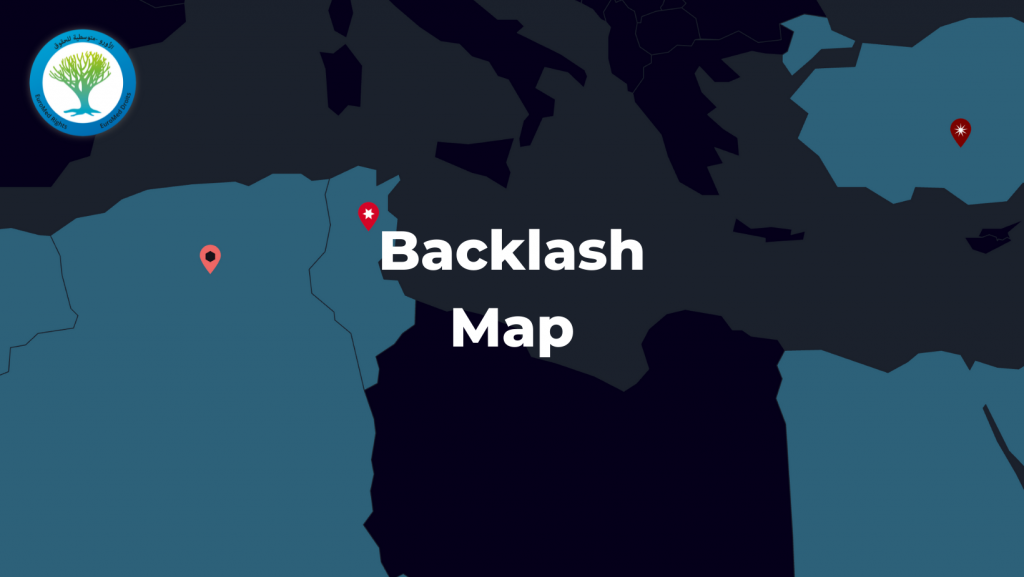EuroMed Rights publishes a new interactive tool to monitor contestations of gender equality across nine countries of the Euro-Mediterranean region.
Violations of women’s and LGBTIQ+ rights are intensifying across the Euro-Mediterranean region. Whether coming from autocratic, illiberal or even self-declared democratic countries, a multitude of actors are openly taking anti-women and anti-LGBTIQ stances.
In Turkey, President Erdogan announced the country’s withdrawal from the Istanbul Convention. In Egypt, a proposed draft of the personal status law would deprive women of their legal status to conclude a marriage contract or claim guardianship of their children. In Tunisia, President Kais Saied’s repeated opposition to equality in inheritance jeopardises hopes forged by millions of women. Across the region, political and economic instabilities – fuelled by the COVID-19 pandemic – are leading to a reassertion of conservative gender roles.
These backlashes take multiple forms. And yet, despite the strong mobilisation of women’s rights organisations across the region, they are seldom tracked nor analysed and are rarely denounced internationally.
A new tool to monitor gender backlashes
To mark an end to these #16DaysofActivism, EuroMed Rights is pleased to launch a new tool aimed at monitoring such backlashes. The tool, which comes under the form of an online interactive map, will provide citizens, civil society organisations, journalists and decision-makers with fact-checked information from trusted civil society sources from nine countries of the Euro-Mediterranean region: Morocco, Algeria, Tunisia, Egypt, Palestine, Jordan, Lebanon, Syria, Turkey.
This Backlash Monitoring Map aims to be cooperative. EuroMed Rights invites civil society organisations, media as well as individuals involved in the fight for gender equality to widely share the map, and to report violations through the dedicated space on the webpage.
“With this Backlash Monitoring Map, EuroMed Rights hopes to expand the monitoring arsenal for civil society, individuals and media to report on the increasing violations of gender equality taking place across the Euro-Mediterranean region. We invite all Human Rights Defenders to spread it widely and use it in their campaigns,” declared Wadih Al-Asmar, President of EuroMed Rights.
Note to editors
Who is the Backlash Monitoring Map for and what will it provide?
The Backlash Monitoring Map will:
- Provide citizens with information on the phenomenon of backlashes, and offer them the possibility to both report violations of women’s and LGBTIQ+’s rights, and “counteract” these via links to petitions and sharing options on social media.
- Provide civil society organisations with a centralised view of developments in the region which can be used in their advocacy and communication campaigns,
- Provide journalists with trustworthy and regularly updated information on ongoing backlashes and developments in the region,
- Provide decision-makers with an overall view of the developments in the region, including the scale of the phenomenon, with easily accessible data to be used in annual reports and various documentation.
What categories of backlashes will the Monitoring Backlash Map list?
The Monitoring Backlash Map tracks major political, legislative and judicial decisions or actions aimed at further diluting women’s and LGBTIQ+ people’s human rights. Forms of discriminations or inter-personal enactment of violence, even though they reflect structurally rooted inequalities, are not accounted for.
How will reported backlashes be fact-checked?
Developments will be monitored by EuroMed Rights’ Women’s Rights and Gender Justice team. Reported backlashes by external stakeholders will be fact-checked using cross-checking methods and be referred to EuroMed Rights’ member organisations based in the relevant country for final confirmation.

